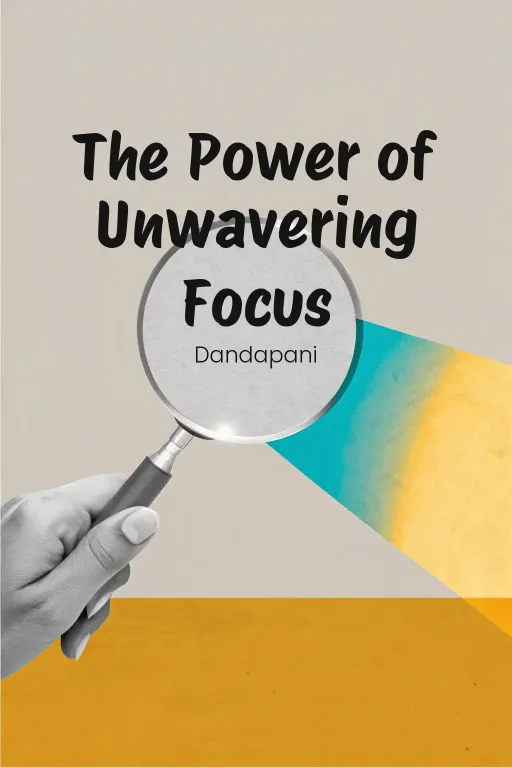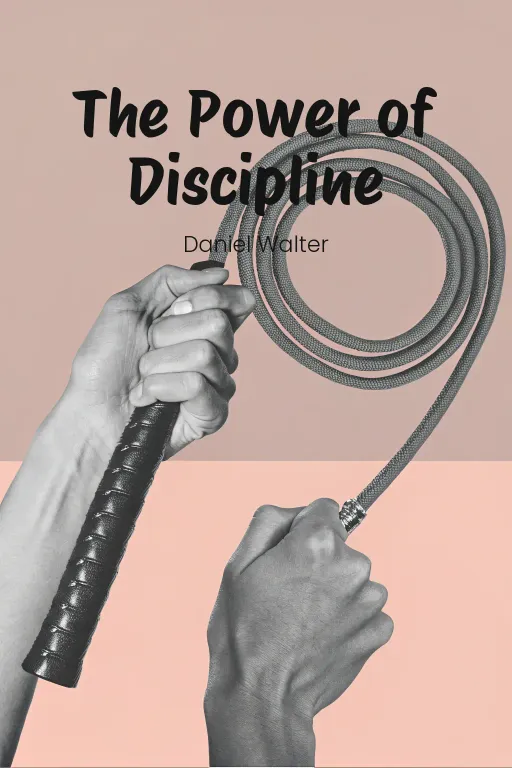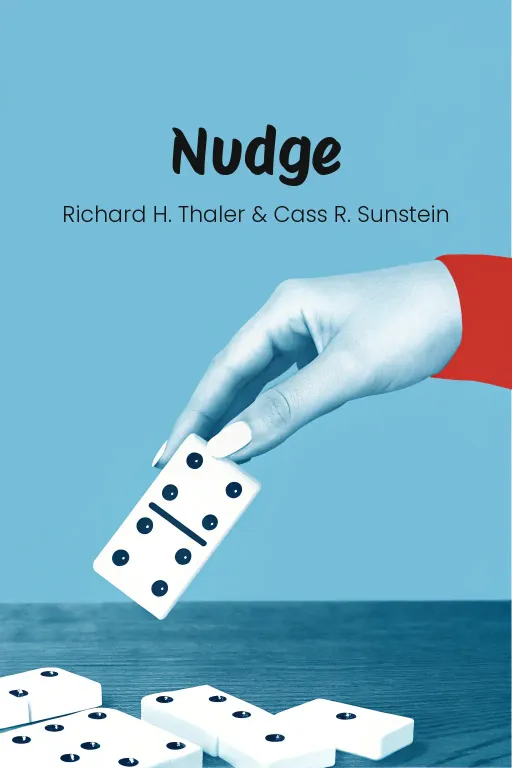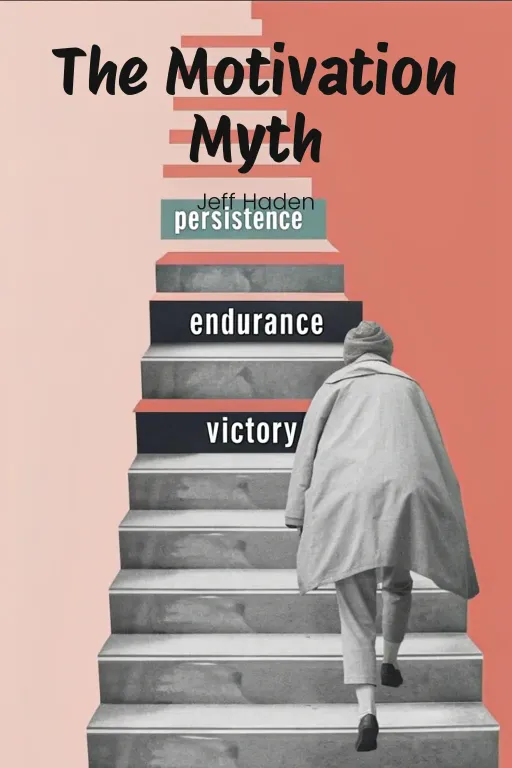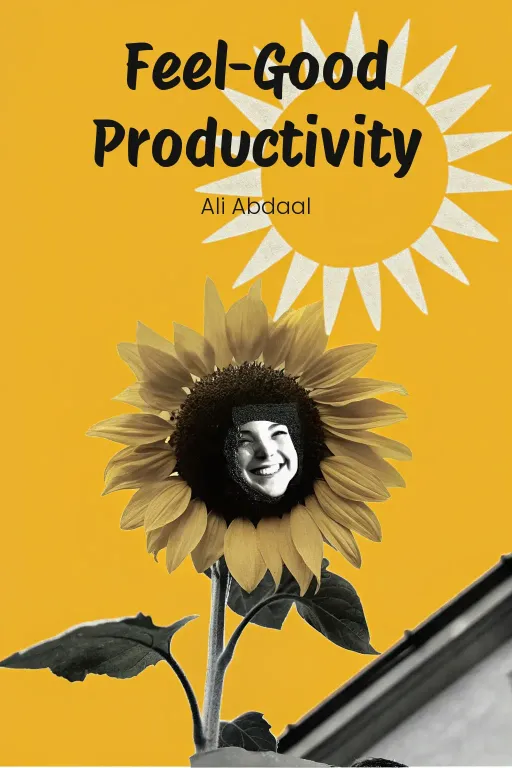
Focus Now: Direct Your Mind's Eye
Podcast by Beta You with Alex and Michelle
How to Live the Life You Want
Introduction
Part 1
Alex: Hey everyone, welcome back! Let me kick things off with a question: how many times today have you picked up your phone, stared blankly at the screen, and then thought, “Wait, what was I even looking for?” Michelle: <Chuckles> Alex, you're reading my mind, or maybe just accurately describing modern existence. It's like we're all just permanently chasing digital mirages. Ahem…Am I right? Alex: Exactly, Michelle! And that's why our topic today is so vital. We're diving into The Power of Unwavering Focus by Dandapani – a former Hindu monk. He's basically offering ancient wisdom designed to cut through the noise of our multitasking world. The core idea? Learning to direct your awareness, to focus it, so you can really cultivate mental discipline, shut out distractions, and focus on what truly matters. Michelle: So, you’re saying there's hope of escaping the endless scroll? It sounds ambitious, but I am listening. Alex: Absolutely! Dandapani's point is that focus isn't some innate talent, but a skill. Anyone can train it. And he links it to everything. Our emotions, habits, all the energy we spend on our daily choices. Michelle: Alright, so let's give the listeners a roadmap of where we're going here. What are we unpacking today? Alex: Good question. First, we’re going to explore Dandapani’s analogy of comparing our awareness to a traveler navigating the mind. It's a brilliant way to rethink our reactions to distractions and our emotions. Michelle: A mental GPS then, huh? Sounds good. What's next on the itinerary? Alex: Next, we’ll unpack his step-by-step strategies for building mental discipline. Think of it as strengthening that “focus muscle” through intentional practices and routines. Michelle: Like a gym membership for the mind! Got it. And finally? Alex: And lastly, we will get into practical techniques to really conquer distractions and apply the focus to real-world challenges. Whether you're buried under emails or trying to tackle that massive project, this is your toolkit. Michelle: Okay, so like a whole mental spring cleaning. Awareness, discipline, actionable tools. A solid framework. How might someone, like me, apply this in modern urban life for example? Alex: Exactly! So, everyone, grab your metaphorical toolboxes. It’s the time to streamline your focus and channel your energy towards clarity and purpose. Let’s get started!
The Power of Awareness and Focus
Part 2
Alex: Okay, so let's jump in, shall we? Dandapani uses this great metaphor: awareness is like a glowing ball of light. Think of it as a traveler moving from room to room in your mind. Michelle, imagine your mind is this massive mansion, right? Each room is a different mental state or feeling. Michelle: So, you're talking, like, a happiness room, an anger room, a creativity zone… my mind's a multi-level mansion of madness, got it. Alex: Exactly! And the glowing ball? That's “your” awareness. It's whatever you're laser-focused on in that moment. Michelle: So basically, my thoughts and feelings are just hanging out in these different rooms, and wherever I shine that glowing ball, that's the reality I'm experiencing? Alex: Precisely. You walk into the anger room, bam, you're feeling angry. Stroll into the gratitude room, you're grateful. The cool thing is, the mansion itself—your mind—it's static. All these rooms are there, all the time. But “awareness”? That's the dynamic part. It moves, and you have the power to decide where it goes. Michelle: Alright, alright, I'm tracking. But let’s get real here: how often are people actually choosing where to point that light? I mean, most of the time it feels like it's bouncing around like a screensaver, reacting to whatever shiny object grabs its attention. Alex: And “that's” the core challenge, isn't it? In today's world, that glowing ball is constantly getting hijacked—notifications, worries, you name it. But Dandapani makes it clear: you can consciously direct your awareness. You don't have to be stuck in the anger room or the stress room unless you allow yourself to linger. Michelle: Right. So he’s saying the quality of your life hinges on which room you spend the most time in, yeah? Like, if you're always dragging that glowing ball into the negativity or anxiety room, that’s going to become your default emotional state, your mental habits… just your whole experience. Alex: Exactly. And mastering that choice… “that” gives you agency, real power, over your life. There’s a great story that illustrates this. Imagine you’re in a heated argument. Your awareness naturally wants to dive into the anger room, right? But if you’re mindful, you can consciously shift that awareness. Say, toward compassion or understanding. That completely changes the game. It defuses the tension and can actually lead to a solution, instead of just more yelling. Michelle: That’s a powerful image, I’ll give you that. But let's be honest, mid-argument, who's actually thinking, "Hang on a sec, let me consciously move my awareness to the compassion zone"? Most people are just trying not to say something they'll regret! Alex: Exactly, and that’s where Dandapani stresses that controlling awareness is a skill. It’s like training a muscle, honestly. You need the consistent practice to get yourself to a point to consciously redirect your awareness in times of high emotion. And to build this skill, he gives specific techniques, starting with mindfulness. Michelle: Mindfulness… yeah, we hear that word thrown around all the time. Break that down for us. How does mindfulness actually work with the whole glowing ball metaphor? Alex: Mindfulness is basically an anchor for your awareness. It's about bringing your attention fully into the present moment, observing your thoughts and emotions without judging them. Let's say you're swamped at work, taking a moment to focus on your breathing can actually break you free from the cycle of anxiety and get yourself grounded in the current situation. Michelle: Okay, so instead of your awareness just automatically bouncing into the stress or overwhelm room, you hit the pause button and consciously steer it back to neutral. I get it. But how about when you're not just trying to avoid a bad state, but also actively trying to get to a positive one? How does Dandapani deal with that? Alex: That's where visualization comes in. Think of visualization as a tool to intentionally direct that glowing ball of awareness toward where you want to be. Let's say you've got a big presentation coming up, right? With visualization, you're picturing yourself crushing it—confident delivery, positive reactions, the whole nine yards. Dandapani argues this doesn't just sharpen your focus, it aligns your emotions and your energy toward that awesome outcome. Michelle: Alright, I can see how that could work. Athletes have been using this trick forever—they mentally rehearse their performance and practically taste the victory before it even happens. But let's talk about this idea of detachment he brings up. That one felt a little trickier to nail down, you know? Alex: Detachment is all about observing your thoughts and emotions without getting dragged down by them. Like, imagine your awareness is still floating through the rooms of your mind from earlier. Detachment says you can walk into the fear room, or the self-doubt room, take a look around, acknowledge what's happening... but you don't have to unpack your bags and stay there forever. It creates space! Space between your awareness and the mental chatter. Michelle: It's like being a museum-goer instead of the artwork, right? You're checking out the exhibit, but you're not the one hanging on the wall. There's a story in the book that really captures this, if I remember right? About the entrepreneur? Alex: Yes! Someone launching a business and getting stuck in the anxiety room. You know, imaging failure and all the worst possible scenarios. Instead of getting caught in the loop of despair, this person starts practicing detachment, as just a passing thing. This helps them to shift that attention into the problem-solving side and take actionable steps, so they don't have to be scared all the time. Michelle: That is a game-changer. A lot of people have no idea how much energy they waste letting those worries set up permanent residence in their awareness. It’s like being a mental landlord who lets the worst tenants squat rent-free! Alex: Exactly. Dandapani points out that practicing detachment isn’t about ignoring your emotions, it’s about not letting them run the show. You can acknowledge them, but still have the power to decide where your awareness goes next and how much the emotion affect you. Michelle: Okay, so this is starting to click for me. Awareness is the ball of light, mindfulness keeps you in the present, visualization points you towards where you want to be, and detachment keeps you from getting stuck in the wrong places. This is actually a pretty handy mental toolkit. Alex: Absolutely. Once you understand how awareness really works, you can start using these principles in everything you do, even the everyday stuff, like brushing your teeth or doing the dishes. By consciously guiding that awareness, you’re building your focus and clarity one step at a time.
Cultivating Willpower and Discipline
Part 3
Alex: Building on that awareness, we naturally move into cultivating mental discipline, right? Dandapani emphasizes willpower, showing how it's not just innate but trainable, like a muscle. Michelle: Exactly. The logic is solid: First, awareness of where your mind goes, then control through small actions. So, where does Dandapani suggest we begin strengthening our willpower? Alex: The starting point is simple yet profound: completing tasks. He argues that unfinished tasks drain mental energy, creating subtle stress, like having too many browser tabs open. Finishing things frees mental bandwidth and reinforces discipline. Michelle: So, it's like closing those tabs to avoid the "low memory" warning on your computer. Alex: Exactly! And it's not just about big projects, but small tasks too. If you start folding laundry but then get distracted by your phone, that unfinished task lingers, even faintly. Finishing it clears mental clutter and builds momentum. Michelle: Okay, I get it. But what about those big, complex projects where motivation just… dies? Like the programming example in the book. What if challenges overwhelm you halfway through? Do we just force ourselves through? Alex: Good point. Dandapani isn’t about blindly pushing through everything. He stresses perseverance and intentional problem-solving. With the programming, it's not just "not quitting," but troubleshooting, breaking tasks down, and staying committed. Each time, you reinforce self-trust—the belief you can see things through. Michelle: So, when motivation wanes, it's less about brute force and more about creatively navigating the challenge. Alex: Precisely. The beauty is it scales. Start small—finish washing dishes immediately, and that habit spills over into larger tasks. Willpower strengthens with consistent use. Michelle: Okay, task completion is one part. What's next in willpower training? Alex: Next, Dandapani emphasizes exceeding expectations, internal and external. It's about going beyond “good enough,” not for praise, but to stretch mental boundaries and build self-confidence. Michelle: Like his story of cleaning the meditation room. He didn't just finish; he went back, paid attention to details, and made it exceptional. But, honestly, what’s the real point? Isn't “good enough”… good enough sometimes? Alex: He's not saying you must overachieve on everything. It's about striving for excellence as a personal discipline. By going above and beyond, you break through mental barriers that say, "This is sufficient." It's about proving you're capable of more. Michelle: So, it's redefining your own limits. Say I'm giving a work presentation. Instead of the bare minimum, I invest in a better slide deck or rehearse more. I'm not just improving the presentation—I'm changing how I see myself professionally. Alex: Exactly! Every time you exceed expectations, you reinforce the belief that "I can achieve more than I think." This belief strengthens willpower, encouraging you to tackle bigger challenges without hesitation. Michelle: Task completion, exceeding expectations… This segues perfectly into pushing past perceived limits. That's the real test, right? Alex: Absolutely. Growth happens when we embrace discomfort. The long-distance running example is striking. Exhausted, the person pushed for one more mile. That extra mile wasn't easy, but it reshaped their sense of capability. Michelle: That resonates because it's a universal moment. We've all been there. That choice to go further—when your mind says stop—is transformative. It expands your boundaries. Alex: Exactly. The principle applies professionally too. The entrepreneur who went beyond contractual obligations during a renovation—adding thoughtful touches like flowers. It wasn't just about impressing clients, but about raising their own standards, building resilience, and strengthening their work ethic. Michelle: It's a clear message: Growth isn't about giant leaps, but consistently stretching a little further each time. You're redefining “normal,” making future challenges less intimidating. Alex: Precisely. And the last piece is integrating this discipline into daily routines. Willpower grows best through small, consistent habits. Simply making your bed every morning can reinforce discipline and order. It's about starting with intention. Michelle: Okay, quick confession: I don't make my bed. But I see the logic. Starting with one small action could set the tone. It's a domino effect. Alex: Exactly! And managing technology. He emphasizes resisting distractions, like silencing notifications or time-blocking. Small actions that strengthen focus and resist temptations long term. Michelle: So, in summary, cultivating willpower is layered. Complete tasks to build persistence. Exceed expectations to shatter mental limits. Push into discomfort to discover capability. And ground it all in consistent routines. A complete roadmap! Alex: Absolutely. And these practices aren't reserved for lofty goals—they're accessible to everyone, at every level, in everyday life.
Overcoming Mental Challenges and Applying Focus in Life
Part 4
Alex: So, Michelle, with all these tools we’ve discussed, we're perfectly poised to apply Dandapani’s principles in practical, real-world scenarios, especially when challenges arise. We're really getting to the heart of his teachings now—transforming focus itself into a kind of superpower, especially when facing mental hurdles like worry and anxiety. Michelle: Right, Alex. We’re talking about integrating all those earlier concepts—awareness, willpower, discipline—into something actionable. Let's dive into how these ideas help us navigate emotional and mental challenges, and most importantly, how they boost productivity and overall well-being, both at work and in life. Michelle: Alright, I’m ready. But where does he even begin when it comes to tackling mental obstacles like anxiety and fear? Alex: He starts with understanding what fear and worry actually are. Dandapani argues that these feelings really thrive when our awareness is stuck either in the future or the past. Fear tends to be about imagined “what if” scenarios, while worry is often about replaying old mistakes or feeling uncertain about what’s coming. Michelle: So, your awareness gets pulled into these hypothetical situations and unresolved memories, and you're just caught in this endless mental loop, then? Alex: Precisely! That’s why he constantly emphasizes grounding your awareness in the present moment. By anchoring yourself firmly in the “here and now,” you can actually disrupt those negative cycles. To put it in his words, "awareness is dynamic, but the mind stays static." Your mind is capable of conjuring any of these feelings, but it's your awareness that's actively moving between them. Michelle: So, instead of this glowing ball of awareness bouncing back and forth between past regrets and future anxieties, we want to try to keep it right here, right now. Got it! How do we actually “root” that awareness, according to him? Alex: Okay, so the first step is really adopting some mindfulness techniques and practices that'll stop your awareness from spiraling. He shares a story about a woman named Julie, who was completely consumed by fear after her father passed away. She was constantly worrying about losing other loved ones, and it was paralyzing her, preventing her from fully enjoying the relationships she still had. Michelle: Wow, that hits home. It's so true how fear of the future can rob you of joy in the present. Alex: Exactly. Dandapani suggested mindfulness as a way for Julie to ground her awareness. Simple breathing exercises became her anchor. The repetitive focus on her breath helped pull her back from hypothetical fears to what was real and present. Eventually, this process gave her the mental clarity to shift her focus toward cherishing her family and creating new memories instead of being consumed by "what ifs." Michelle: Right, it’s like planting a flag: "Okay, I’m here now. Focus on what matters.” But let’s say the fear isn’t just internal. What if it's tied to an external problem – like a challenge at work? Alex: Great question! Dandapani shares a story about a chef gripped by anxiety over potential disasters in his restaurant—fire hazards, injuries, the works. All these fears clouded his judgment and affected his work as his awareness was fixated on the worst-case scenarios. Michelle: So, he didn’t just build an anxiety-proof bunker, right? Alex: <Laughs> Not quite! Instead, he channeled that fear into constructive action. He consulted experts, revised the restaurant’s safety protocols, trained his staff, and prepared for all kinds of emergencies. This shifted his awareness from simply worrying about “what could go wrong” to focusing on proactive solutions. Michelle: That’s flipping fear on its head, right? Instead of avoiding disaster, you use that energy to build safeguards and, ultimately, gain peace of mind. Alex: Absolutely! And this is a crucial point: fear itself isn't always a bad thing. It can be a signal, a nudge toward taking action. It's all about how you choose to respond. Do you let it paralyze you, or use it as a catalyst to move forward? Michelle: Mindfulness to root awareness, action-oriented strategies to channel fear… I like it. What other tools does Dandapani give us? Alex: He emphasizes visualization—not just to calm fears, but to consciously direct awareness toward positive outcomes. By vividly imagining success or overcoming challenges, you’re aligning your awareness and emotions with something constructive instead of doubt. Michelle: He even shares his own experience with visualization, right? His public speaking story – using it to overcome nerves before a big event? Alex: Yes, it's a perfect example. Before stepping on stage, he focused his awareness on a mental image of himself delivering a confident, impactful presentation. He visualized the audience responding positively. This mental prep helped guide his emotions and mindset toward success instead of anxiety. Michelle: Makes sense. You’re pre-loading your mind with the song you want stuck in your head, instead of letting random anxieties hijack the system. Alex: Exactly! Replacing worry with constructive visualization actively rewires where your awareness spends its time. Michelle: Okay, so grounding awareness, reframing fear, and visualization to aim for positive outcomes. What’s next? Alex: Another key tool Dandapani emphasizes is detachment. It doesn’t mean ignoring your emotions, but stepping back to observe them rather than being consumed by them. He likens it to creating a sense of space within your mind. Michelle: So, instead of drowning in your thoughts, you’re building a mental balcony—the higher up you climb, the better perspective you have on what’s happening below. Alex: What a great analogy, Michelle! There’s a case in the book about an entrepreneur facing constant financial stress while launching a new business. Instead of letting that paralyze him, he practiced detachment. Stepping back mentally allowed him to make sound decisions and focus on solutions instead of giving in to fear. Michelle: It's the ultimate hack—creating distance keeps you from getting emotionally hijacked and turning a setback into a mental train wreck. Alex: Exactly. By practicing mindfulness, visualization, and detachment, you’re equipping yourself with robust tools to navigate these mental challenges. Michelle: Right. And not just navigating them, but thriving in spite of them! This mental toolkit isn’t about avoiding challenges—it’s about showing up with clarity, direction, and control over where your awareness goes. Alex: Absolutely. And this toolkit doesn’t just apply to personal struggles. It’s also a game-changer in professional settings, from workplace productivity to leadership. Let’s shift gears and see how Dandapani's principles can elevate the workplace.
Conclusion
Part 5
Alex: Okay, Michelle, I believe we’ve really dived deep into Dandapani’s core teachings, From grasping that awareness is like the traveler of our minds, to building willpower by completing tasks and pushing our boundaries, and ultimately, how to anchor ourselves in the present to conquer fear and anxiety—we’ve touched on the whole picture. Michelle: Definitely. It really boils down to steering that little glowing ball of awareness, doesn’t it? Where you let it hang out shapes your emotional state, your mental clarity, and, well, even the course of your life. What I particularly appreciate is how practical this whole approach is—you're not just learning abstract ideas, you are gaining very actionable tools that you can incorporate immediately. Alex: Exactly, and that’s Dandapani’s gift, right? Taking something as deep as, say, monastic discipline and making it applicable to our crazy, modern lives. If our listeners take away just one thing, let it be this: You can regain your focus. It simply requires practice, patience, and consciously guiding your awareness back to what really matters. Michelle: That’s a bold challenge, Alex—and one worth considering. So, everyone, next time you’re about to be pulled into the “distraction room” by your phone or whatever's worrying you, just pause. Seriously, just pause. Think about where you want your awareness to be, and then, reclaim control. Alex: Precisely. Remember, focus isn’t just about what you agree to do, but what you're prepared to decline. Guard your awareness as if it's your most priceless possession because, as Dandapani points out, where awareness goes, energy follows. Michelle: With that in mind, let’s give everyone a bit of homework: choose one small focused act today. Whether it's completing a task or catching your wandering attention, just practice being deliberate. Small steps, after all, lead to substantial change. Alex: I love it. Thanks for listening, everyone. Until next time, stay mindful, stay focused, and keep steering that glowing ball of awareness toward the life you actually desire.


